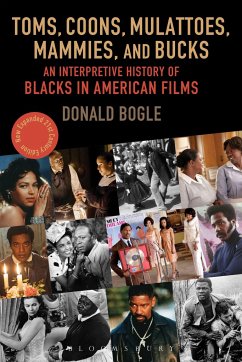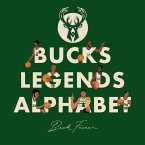Much has happened since the late 1990s, basically where the present edition leaves off (published 2001). Both Monster's Ball and Training Day, which saw Oscars going to Halle Berry and Denzel Washington, are controversial and require discussion in far more detail. (As the present edition went to press, a few words went in on each.) Bogle often speaks just on these films. Notable is that every year since 2001, at least one African American performer has been Oscar-nominated. Some years, there have been two or three. Jamie Fox won for Ray, Morgan Freeman for Million Dollar Baby, and of course Forest Whitaker and Jennifer Hudson someone who would be profiled for her compelling story. The story of black directors is the opposite, as these young turks are going more mainstream in their interests. F. Gary Gray (The Italian Job) and Tim Story (Fantastic Four), to name two, are making films that do not involve African American themes, as has John Singleton many have "strayed." In other words, the Bush II era is looking a lot like the Reagan era 1980s, with exceptions like Diary of a Mad Black Woman (Tyler Perry). The new edition would be especially strong on the dilemma of African American women in Hollywood. Spike Lee, for example, has criticized Queen Latifah for playing an Aunt Jemima-like character in Bringing down the House. Things change yet they don't the five stereotypes of the title still hold, and that is the way this 100-year history will conclude.
This classic iconic study of black images in American motion pictures has been updated and revised, as Donald Bogle continues to enlighten us with his historical and social reflections on the relationship between African Americans and Hollywood. He notes the remarkable shifts that have come about in the new millennium when such filmmakers as Steve McQueen (12 Years a Slave) and Ava DuVernay (Selma) examined America's turbulent racial history and the particular dilemma of black actresses in Hollywood, including Halle Berry, Lupita Nyong'o, Octavia Spencer, Jennifer Hudson, and Viola Davis. Bogle also looks at the ongoing careers of such stars as Denzel Washington and Will Smith and such directors as Spike Lee and John Singleton, observing that questions of diversity in the film industry continue. From The Birth of a Nation, the 1934 Imitation of Life, Gone with the Wind, and Carmen Jones to Shaft, Do the Right Thing, and Boyz N the Hood to Training Day, Dreamgirls, The Help, Django Unchained, and Straight Outta Compton, Donald Bogle compellingly reveals the way in which the images of blacks in American movies have significantly changed-and also the shocking way in which those images have often remained the same.
Hinweis: Dieser Artikel kann nur an eine deutsche Lieferadresse ausgeliefert werden.
This classic iconic study of black images in American motion pictures has been updated and revised, as Donald Bogle continues to enlighten us with his historical and social reflections on the relationship between African Americans and Hollywood. He notes the remarkable shifts that have come about in the new millennium when such filmmakers as Steve McQueen (12 Years a Slave) and Ava DuVernay (Selma) examined America's turbulent racial history and the particular dilemma of black actresses in Hollywood, including Halle Berry, Lupita Nyong'o, Octavia Spencer, Jennifer Hudson, and Viola Davis. Bogle also looks at the ongoing careers of such stars as Denzel Washington and Will Smith and such directors as Spike Lee and John Singleton, observing that questions of diversity in the film industry continue. From The Birth of a Nation, the 1934 Imitation of Life, Gone with the Wind, and Carmen Jones to Shaft, Do the Right Thing, and Boyz N the Hood to Training Day, Dreamgirls, The Help, Django Unchained, and Straight Outta Compton, Donald Bogle compellingly reveals the way in which the images of blacks in American movies have significantly changed-and also the shocking way in which those images have often remained the same.
Hinweis: Dieser Artikel kann nur an eine deutsche Lieferadresse ausgeliefert werden.








